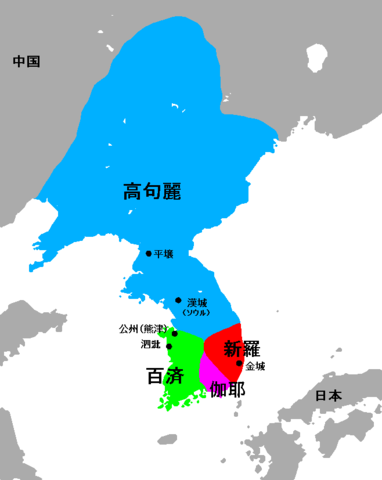

Silla historians traced the kingdom's origin to 57 BC, but contemporary historians regard King Naemul (AD 356-402) as having been the earliest ruler. The Silla Kingdom evolved in the southeast. This process occurred in the mid-third century A.D., after the Chinese army of the Wei Dynasty (AD 220-65), which controlled Lolang, threatened the tribes in AD 245. The tribal states in the southwest were the first to unite, calling their centralized kingdom Paekche. Moreover, the presence of the mountains prevented the tribes in the two regions from establishing close contacts. This extension, the Sobaek Range, proved politically significant the tribes west of it were not shielded by any natural barriers against the Chinese-occupied portion of the peninsula, whereas those to the southeast were protected. Approximately three-fourths of the way down the peninsula, however, at roughly the thirty-seventh parallel, the mountain range veers southwest, dividing the peninsula almost in the middle. In the central part of Korea, the main mountain range, the T'aebaek Range, runs north to south along the edge of the Sea of Japan, which lies off the east coast of the peninsula. Geographic features of the southern parts of the land, in particular the configuration of mountain ranges, caused two kingdoms to emerge rather than one. The two kingdoms eventually came to play an important role in Korean history. Adopting the Chinese political system as a model, the tribes eventually merged into two kingdoms, thereby increasing their chances of survival against Chinese expansionism.

These tribal states began to be affected by what was happening in the region north of the Han River around the first century BC.Ībout the middle of the third century AD, the Chinese threat began to serve as a unifying political force among the loose confederations of tribes in the southern part of the peninsula. Their economies were predominantly agricultural, and their level of development was such that they built reservoirs and irrigation facilities. Chinhan was situated in the middle part of the peninsula, Mahan in the southwest, and Pyonhan in the southeast. The early settlers of this region gradually organized themselves into some seventy clan states that were in turn grouped into three tribal confederations known as Chinhan, Mahan, and Pyonhan. The territory south of the Han River is relatively distant from the Asian continent hence, the people living there were initially able to develop independently, without much involvement with events on the continent.


 0 kommentar(er)
0 kommentar(er)
